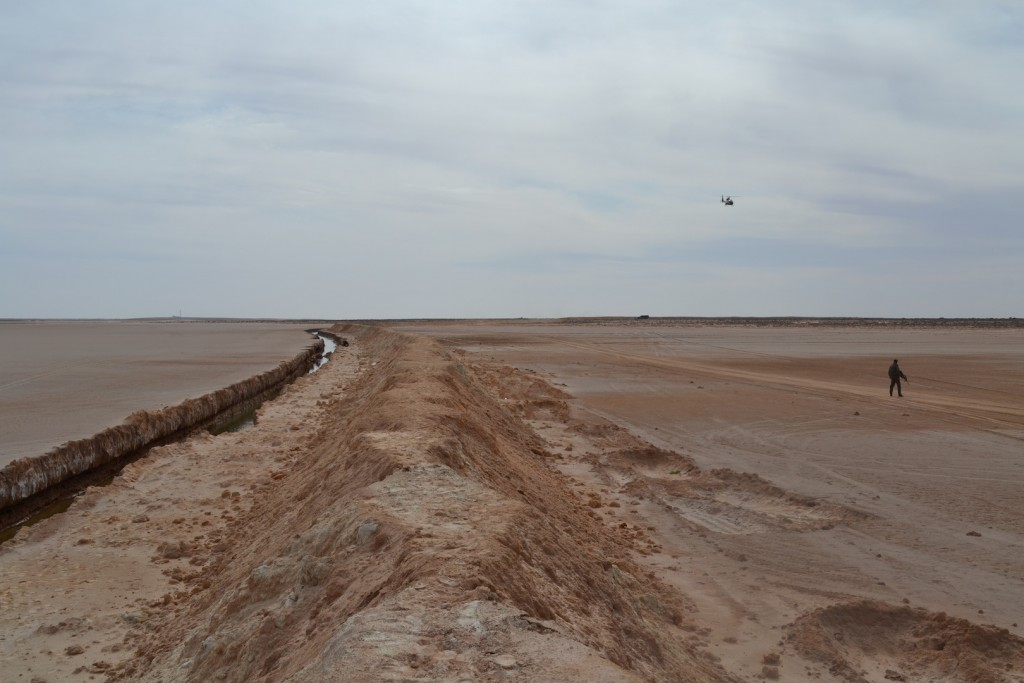By Libya Herald reporter.

Ras Jedir, 7 February 2016 :
Tunisia has completed the first stage of a barrier along its border with Libya. . . .[restrict]It stretches 196 kilometres from the main border crossing Ras Jedir on the coast to Dehiba, the southern border crossing, and is two kilometres away from the official border, inside Tunisian territory.
The second part of the barrier is currently under construction. The Tunisian authorities told the Libya Herald that, when complete, it would total approximately 500 kilometres in length.
For the moment, the “fence” comprises of a trench, in most cases filled with water, and a sand embankment. Behind this system of obstacles, the two-kilometre zone to the border is a no man’s land. “We have the right to shoot anyone in this zone,” explained a soldier.
A second phase of the project will include electronic equipment.
“It still lacks an electronic monitoring mechanism, which will be set up with our German and American friends,” said Tunisian Defence Minister Farhat Horchani during a tour of the barrier on Saturday. He talked of “thermal cameras and controls” to be installed in the coming months.
Tunisia had to fight terrorism in an active and efficient way and could do so, he said, but added that “the fight must be not only security and military. We must present a cultural solution”. At the root of terrorism, he said, “there is a lack of education, of religious culture.” He stressed that a spread of action had to be taken “to stop young people leaving for Syria”.
Tunisian officials estimate that more than 5,500 Tunisians have joined armed groups, including the so-called Islamic State. According to them, there are around 1,500 in Libya.
The minister claimed that the barrier has already “proven its efficiency”. On several occasions, he said, “we stopped and arrested people who were trying to smuggle weapons”.
However, some of those who joined the press trip organised by the Tunisian defence ministry questioned the effectiveness of the barrier. A camerman was able to cross the water-filled trench easily by walking on some stones. Climbing the sand dune, a journalist brought down a part of it. Nothing is holding the sand. A storm could destroy what is in effect a dune.
The governement announced the construction of the barrier after the Sousse attack last June. The Tunisians authorities claimed that the terrorists in that attack and in the earlier Bardo killings in March 2015 had been trained in Sabratha, in Libya.
The municipality of Sabratha has always denied the presence of a training camp in its city, although there are presistent and widely believed reports to the contrary. [/restrict]






